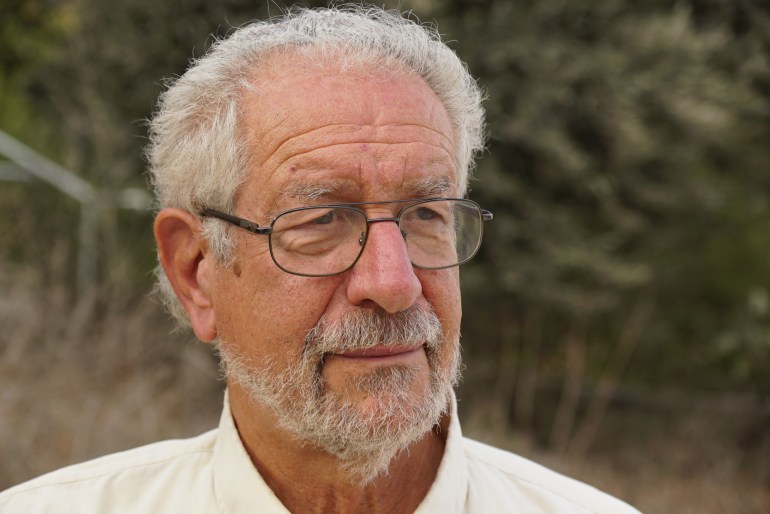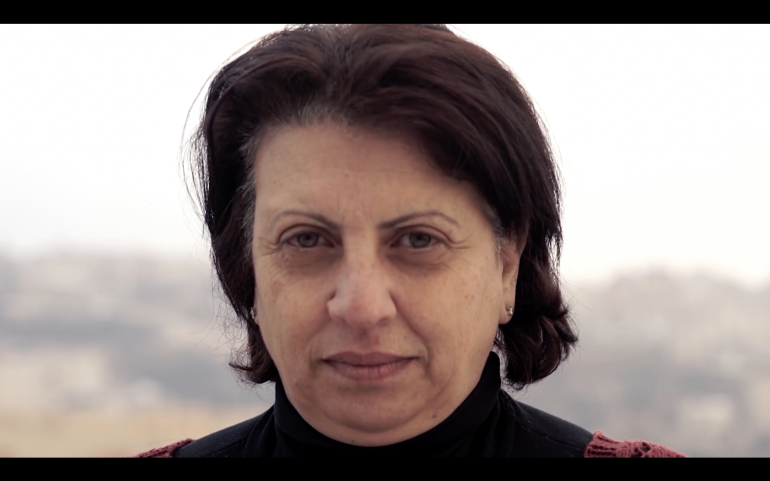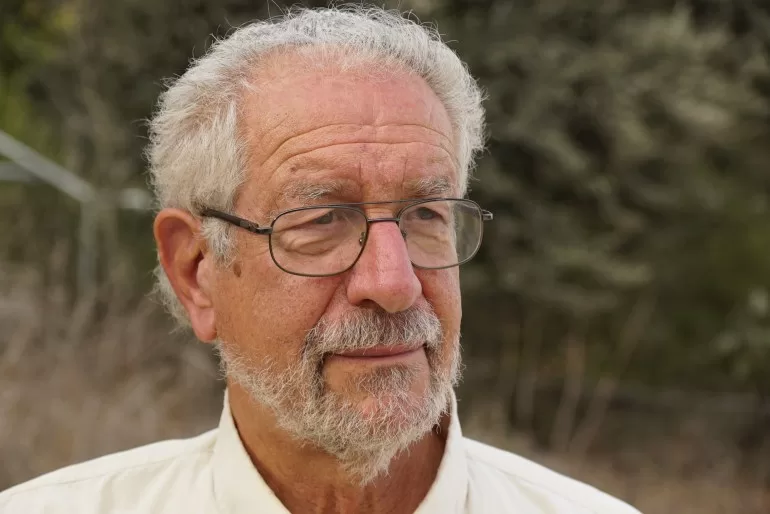Growing up in a Jewish family that believed in Zionism, she spent much of her adolescence thinking about what she considers a sense of entitlement regarding the “Holy Land”.
For her 2022 documentary, The Tinderbox, Mosely travelled to Israel to try to unpack her British family’s teachings.
Taking viewers through the history of the creation of the Israeli state, The Tinderbox interrogates an ingrained us vs them dichotomy that Moseley suggests is instilled in Zionism. She speaks with several people on all sides, including settlers, liberal Israelis, a Hamas official and Palestinians in the occupied West Bank to try to find the root of where the frictions begin.
Al Jazeera speaks to Moseley about her personal journey, Israel’s latest and deadliest war on Gaza following Hamas’s attacks on October 7 and a growing clash between Jewish communities.

Al Jazeera: With no end in sight to Israel’s war in Gaza, what should viewers take away from your film?
Gillian Mosely: When I watched the film post-October 7, it really gave me goosebumps, and I found it quite disturbing because it effectively predicted in a number of places that something like this is going to happen if things don’t change.
Unfortunately, it just sort of feels like October 7 was inevitable. If we don’t learn from history, we’re condemned to repeat it. I just keep wondering at what stage are we actually going to pay attention to history and learn from it and do things better.
Al Jazeera: How would you characterise your experiences while making the film, speaking to people on both sides of the conflict?
Mosely: It was good. Everybody we spoke to was welcoming. Of course, some people didn’t want to speak, but some people really wanted to speak, and we’re just happy to be able to put forward their truth.
It’s only through surveying a large cross-section of people that you really understand the totality. I think this is one of those things that’s just what’s wrong with today because people end up in echo chambers, and they miss so much that way.
You cannot judge something based on a one-sided understanding; you really have to understand it all, and you certainly cannot fix something based on a one-sided understanding.
Al Jazeera: How important was it for you to root the film in the region’s religious importance?
Mosely: The Holy Land is important to three religions. … It always seems strange that one of those religions would try to dominate the others in such a big way. It’s a place for all of the Abrahamic religions, and I think we forget that at our peril.
Al Jazeera: In your film, you discuss how Israeli media plays a crucial role in Zionism.
Mosely: I don’t think it’s just Israeli media. I’m a bit older, but I don’t remember quite this level of propagandising when I was younger.
It’s really interesting because [the Canadian author, activist and filmmaker] Naomi Klein gave a speech in Brooklyn last week for Passover, in which she basically suggests that Zionism has taken over from Judaism as the be-all and end-all within a world Jewry.
But the reality is that more and more diaspora Jews don’t sign up for that. We think Judaism is more important than Zionism. So I think that is setting up a clash, really, amongst the world’s Jewish population.
Judaism has been around for about 2,500 years. Zionism has been around for 150 years. So I don’t understand how it is that some people think that Israel is more important than Judaism, but seemingly, some do.
A lot of stuff that gets done in the name of Zionism completely counters my understanding of Judaism.
But I think almost worse than the propaganda is the wall. Older Palestinians and Jews will have met each other. But we’re now at a stage where there are several generations of people who may never have seen a Palestinian if they’re Jewish and vice versa.

Al Jazeera: You’ve researched Britain’s role in the creation of an Israeli state. Is Britain’s response to the current conflict any different from its engagement before?
Mosely: It’s very different, but I think one thing to make clear is that if you watch the film, you will probably be left in no doubt that, at the very least, Britain fostered this situation. And yet we have never taken any responsibility for this at all, nor have we ever apologised.
But the reality is when Britain marched into Jerusalem in 1917, 90 percent of the population were Muslim and Christian. When we left, it was closer to 50-50. And by 1950, it was 90 percent Jewish, and that’s a massive demographic shift in 33 years.
What fascinates me is, historically, what is going to stand? And in that case, historically, what has stood is those people saying this is going to be a problem, and they’ve been proven right.
History, in my opinion, will prove the pro-Palestine case.
Al Jazeera: Israel is often described as the only democracy in the Middle East. Does this label hold?
Mosely: When I set out to make the film, several things surprised me, not least that when I finished making it, I felt that, in large part, I had actually made a film about the nature of democracy.
I think that around the world at the moment, democracy is being sorely tested, and I think it is partly because there’s been quite a lot of hypocrisy in the positions of Western powers. That is certainly the case in Israel.
Israel is a partial democracy, but it can’t be a democracy when not everybody in the country, let alone within the international borders of the country, has the same civil rights.
So it really has made me think harder about why democracy is important and what happens when we make excuses for our allies’ poor behaviour. I think for a democracy to survive and thrive, that hypocrisy is going to have to go.
